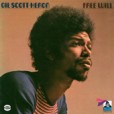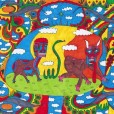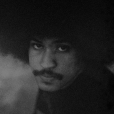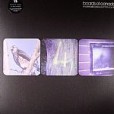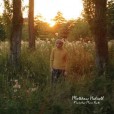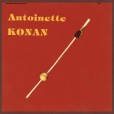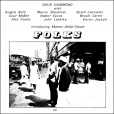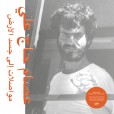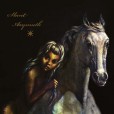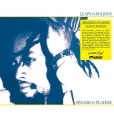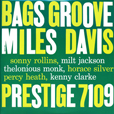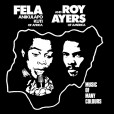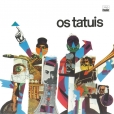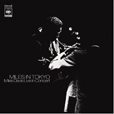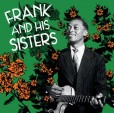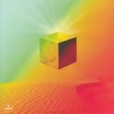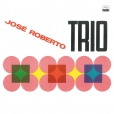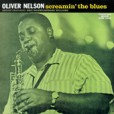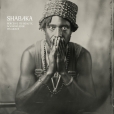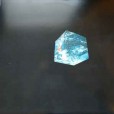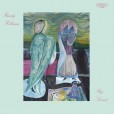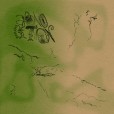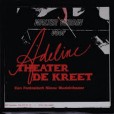Your basket is empty

His third LP, following up Pieces Of A Man in 1972. One side of collaborations with Brian Jackson; the other, spoken word.
Adding alternate versions, the CD runs through the entire tracklisting twice.
The more expensive LP is newly remastered — all-analogue style, from the master tapes.
The unique and magical sound of Los Siquicos Litoraleños (The Littoral Psychics), as fermented in the rural north of Argentina, land of gauchos, mate tea, chamamé folk music and Psilocybe Cubensis.
‘The contemporary group you keep hoping exist, but can never find. If you were to reach for spiritual comparisons, you wouldn’t be forgetting the most spirited moments from Sun City Girls, Butthole Surfers, Faust, Os Mutantes, Captain Beefheart or The Residents’ (Mark Gergis).
Classic spiritual jazz from 1980, with the great bassist Cecil McBee, vocalists Angela Bofil and Bessie Carter, saxophonists Steve Coleman and Byard Lancaster, and cellist Muneer Abdul Fataah.
Recorded in exile in Paris, this is the eye-opening solo debut of the leader of the legendary Lebanese group Ferkat Al Ard.
In 1977 Issam was scratching together a living by busking on the Metro. He could afford just one day in the studio, with a pick-up band of musicians from France, Algeria, Iran — and a friend from Beirut called Roger Fahr, who had left Lebanon around the same time.
Back in Beirut by the end of the year, Issam added percussion and other touches. He made no more than one hundred cassettes, with his last, personal copy providing the master for this precious reissue.
In these genre-shattering settings of the Palestinian poet Samih El Kasemou you can hear the roots of Ferkat Al Ard — but “it’s more of just me,” avers Issam.
Melancholic, stripped, acoustic folk crossed with cosmic, funky jazz-fusion, with strong Brazilian influences. It’s packed with breaks, and haunted by the unique sound of the santour.
Demdike Stare and Andy Votel.
From 1957… with Monk and Milt Jackson on the title-track; Rollins and Horace Silver on the rest.
José Roberto Bertrami from Azymuth (and Tatuí, a small city in the Brazilian state of São Paulo) — not to mention his work for Elis Regina, George Duke, Sarah Vaughn, Jorge Ben, Eddie Palmieri, Milton Nascimento, Flora Purim, and Erasmo Carlos, among countless others — playing piano alongside his bro Claudio on double bass, a horn section, and an organist. With compositions by Antonio Carlos Jobim, Roberto Menescal, Carlos Lyra, Durval Ferreira, and Adilson Godoy, the album also features Bertrami’s own A Bossa Do Zé Roberto, mesmerising bossa jazz which ensconces him amongst the bossa greats, even at the age of nineteen.
From 1964, with Herbie Hancock, Ron Carter and Tony Williams on drums; and young Sam Rivers replacing George Coleman (pushing the sound further out, and spiking Davis’ signature cool).
‘High-energy live versions of songs by Rodgers & Hart, Cole Porter, and Richard Carpenter, as well as a restlessly fast-paced take on the Davis staple So What.’
Vinyl via Get On Down.
Radiant 1950s Tanzanian pop.
‘As a trio Frank Humplick, Thecla Clara and Maria Regina recorded and toured throughout East Africa and issued a string of instant classics, capturing fans with their beautifully harmonized singing, clever lyrics, and Frank’s stunning guitar work. Imagine the fingerstyle finesse of John Fahey cut with a pure pop melodicism, and combined with the family harmony of groups like The Carter Family, The Roches, and The Beach Boys, set in the golden age of Tanzanian music!’
With a colourful eight-page booklet featuring complete lyrics in English, Swahili and Chaga, as well as previously unpublished photographs, extensive interviews, biographies and anecdotes.
A year after Os Tatuís, José Bertrami returned to the studio, this time stripping back to a trio. Again featuring Claudio Henrique Bertrami on double bass, and with Jovito Coluna on drums, the José Roberto Trio recorded their one and only album in 1966, featuring compositions by Baden Powell, Manfredo Fest, and Marcos Valle. The LP also featured three of Betrami’s own compositions: the wistful Lilos Watts, the groovy Kebar, and the dazzling Talhuama.
Another jewel from the golden age of the Brazilian bossa jazz trio — Bossa Três, Milton Banana Trio, Tenório Jr,, Bertrami’s own Bossa Jazz Trio — ushered in by the Tamba Trio, and nourished along the way by jazz greats from Nat King Cole to Bill Evans,
With Eric Dolphy, Richard Williams, Roy Haynes and George Duvivier in 1960, Van Gelder at the controls.

